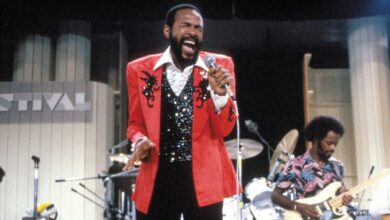Tammy Wynette’s Journey to Stardom: The Untold Story of ‘Stand By Your Man’ and Its Lasting Legacy in Country Music
In the late 1960s, the American country music scene was graced by the soulful voice of Tammy Wynette, a singer whose life story was as compelling as her songs. Born Virginia Wynette Pugh on May 5, 1942, in Itawamba County, Mississippi, she was raised by her grandparents after her father’s untimely death. From a young age, Wynette was no stranger to hard work, often picking cotton in the fields—a testament to her resilience and determination.
Wynette’s early life was marked by personal challenges, including a series of tumultuous relationships and the responsibilities of single motherhood. Despite these obstacles, her passion for music remained unwavering. She performed in local venues and on radio shows, gradually building a reputation for her emotive singing style. Her journey eventually led her to Nashville, the heart of country music, where she hoped to turn her dreams into reality.
In Nashville, Wynette’s talent caught the attention of producer Billy Sherrill at Epic Records. Recognizing her potential, Sherrill signed her to the label in 1966. Their collaboration proved fruitful, resulting in a series of hits that showcased Wynette’s ability to convey deep emotion through her music. Her early successes included songs like “Your Good Girl’s Gonna Go Bad” and “D-I-V-O-R-C-E,” which resonated with audiences and established her as a rising star in the country music scene.
It was during this period that Wynette co-wrote and recorded what would become her signature song, “Stand By Your Man.” Released in 1968, the song was penned in collaboration with Sherrill. Despite its swift creation, the track’s powerful message and Wynette’s heartfelt delivery struck a chord with listeners. The song’s lyrics, which emphasized unwavering support for one’s partner, resonated deeply with many, while also sparking discussions about women’s roles in relationships.
“Stand By Your Man” achieved remarkable success, topping the country charts and crossing over to the pop charts—a rare feat for country songs at the time. Its popularity extended beyond the United States, reaching number one in the United Kingdom in 1975. The song’s impact was further solidified when it earned Wynette a Grammy Award for Best Female Country Vocal Performance in 1970.
The song’s success was not without controversy. Released during the height of the women’s liberation movement, “Stand By Your Man” faced criticism from feminists who viewed its message as promoting female subservience. Wynette, however, clarified that the song was about understanding and supporting one’s partner, a perspective shaped by her own experiences with love and heartache.
Beyond “Stand By Your Man,” Wynette’s career continued to flourish. She released a string of successful albums and singles, many of which delved into themes of love, heartbreak, and resilience. Her collaborations with fellow country star George Jones, whom she married in 1969, produced memorable duets that remain classics in the genre. Their tumultuous relationship, marked by both passion and discord, added a layer of authenticity to their music, resonating with fans who appreciated their raw and honest storytelling.
Wynette’s influence on country music is profound. Dubbed the “First Lady of Country Music,” she paved the way for future generations of female artists. Her ability to convey vulnerability and strength in her songs endeared her to audiences and solidified her legacy as a trailblazer in the industry.
Throughout her career, Wynette faced numerous personal challenges, including health issues and struggles in her personal life. Despite these obstacles, she remained dedicated to her craft, continuing to perform and record music that touched the hearts of many. Her resilience in the face of adversity further endeared her to fans and cemented her status as a beloved figure in country music.
Tammy Wynette’s story is one of triumph over adversity, a testament to her unwavering dedication to her art and her ability to connect with audiences on a deeply emotional level. Her legacy lives on through her timeless music, which continues to inspire and resonate with listeners around the world.



